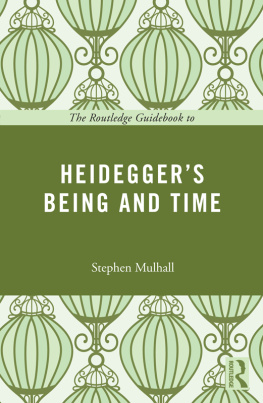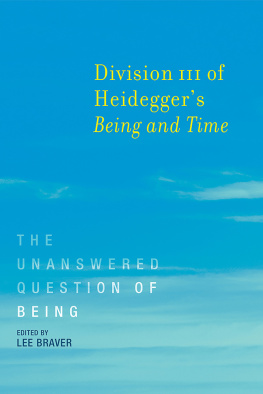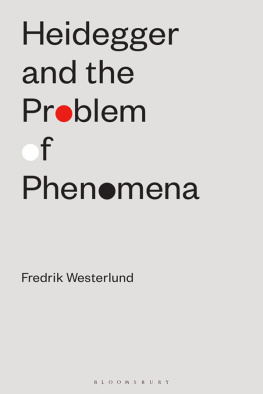Bloomsbury Studies in Continental Philosophy
Bloomsbury Studies in Continental Philosophy is a major monograph series from Bloomsbury Academic. The series features first-class scholarly research monographs across the field of Continental philosophy. Each work makes a major contribution to the field of philosophical research.
Adornos Concept of Life, Alastair Morgan
Adornos Poetics of Critique, Steven Helmling
Badiou and Derrida, Antonio Calcagno
Badiou, Marion and St Paul, Adam Miller
Being and Number in Heideggers Thought, Michael Roubach
Crisis in Continental Philosophy, Robert Piercey
Deleuze and Guattari, Fadi Abou-Rihan
Deleuze and Guattaris Philosophy of History, Jay Lampert
Deleuze and the Genesis of Representation, Joe Hughes
Derrida, Simon Morgan Wortham
Derrida and Disinterest, Sean Gaston
Derrida: Ethics Under Erasure, Nicole Anderson
Domestication of Derrida, Lorenzo Fabbri
Encountering Derrida, Simon Morgan Wortham
Foucaults Heidegger, Timothy Rayner
Foucaults Legacy, C.G. Prado
Gabriel Marcels Ethics of Hope, Jill Graper Hernandez
Gadamer and the Question of the Divine, Walter Lammi
Gilles Deleuze, Constantin V. Boundas
Heidegger and a Metaphysics of Feeling, Sharin N. Elkholy
Heidegger and Authenticity, Mahon OBrien
Heidegger and Happiness, Matthew King
Heidegger and Philosophical Atheology, Peter S. Dillard
Heidegger and the Place of Ethics, Michael Lewis
Heidegger Beyond Deconstruction, Michael Lewis
Heidegger, Politics and Climate Change, Ruth Irwin
Heideggers Early Philosophy, James Luchte
In the Shadow of Phenomenology, Stephen H. Watson
Irony of Heidegger, Andrew Haas
Kant, Deleuze and Architectonics, Edward Willatt
Merleau-Pontys Phenomenology, Kirk M. Besmer
Michel Henry, Jeffrey Hanson
Nietzsche and the Anglo-Saxon Tradition, Louise Mabille
Nietzsches Ethical Theory, Craig Dove
Nietzsches Thus Spoke Zarathustra, James Luchte
Phenomenology, Institution and History, Stephen H. Watson
Ricoeur and Lacan, Karl Simms
Sartres Phenomenology, David Reisman
Simultaneity and Delay, Jay Lampert
Thinking Between Deleuze and Kant, Edward Willatt
Whos Afraid of Deleuze and Guattari?, Gregg Lambert
Zizek and Heidegger, Thomas Brockelman
The Time of Revolution
Kairos and Chronos in Heidegger
Felix Murchadha

Bloomsbury Academic
An imprint of Bloomsbury Publishing Plc
50 Bedford Square | 175 Fifth Avenue |
London | New York |
WC1B 3DP | NY 10010 |
UK | USA |
www.bloomsbury.com
First published 2013
Felix Murchadha, 2013
All rights reserved. No part of this publication may be reproduced or transmitted in any form or by any means, electronic or mechanical, including photocopying, recording, or any information storage or retrieval system, without prior permission in writing from the publishers.
Felix Murchadha has asserted his right under the Copyright, Designs and Patents Act, 1988, to be identified as Author of this work.
No responsibility for loss caused to any individual or organization acting on or refraining from action as a result of the material in this publication can be accepted by Bloomsbury Academic or the author.
British Library Cataloguing-in-Publication Data
A catalogue record for this book is available from the British Library.
ISBN: 978-1-4411-2016-8
Library of Congress Cataloging-in-Publication Data
Murchadha, Felix.
The time of revolution : kairos and chronos in Heidegger / Felix Murchadha.
p. cm.
Includes bibliographical references (p. ) and index.
ISBN 978-1-4411-0246-1 (hardcover : alk. paper) -- ISBN 978-1-4411-2016-8 (epub) -- ISBN 978-1-4411-1945-2 (ebook) 1. Heidegger, Martin, 1889-1976. Sein und Zeit. 2. Ontology. 3. Space and time. I. Title.
B3279.H48S46654513 2012
193--dc23
2012020413
Typeset by Fakenham Prepress Solutions, Fakenham, Norfolk NR21 8NN
To my wife Anne and my son Felix Alexander
Contents
This is a translation and a reworking of a book published in 1999 in German, entitled Zeit des Handelns und Mglichkeit der Verwandlung. Kairologie und Chronologie bei Heidegger im Jahrzehnt nach Sein und Zeit (Time of Action and the Possibility of Transformation. Kairology and Chronology in Heidegger during the decade following Being and Time). The author is grateful to the publishers of that book, Knigshausen und Neumann Verlag (Wrzburg), for permission to publish this revised translation. The change in title reflects a shift of emphasis, in which the notion of revolution is given more prominence as a key concept in Heideggers thought. Each chapter has been revised in content and style in terms of this change of emphasis. Account has also been taken of publications since 1999, both of new volumes in the Heidegger Gesamtausgabe and of secondary literature on Heidegger, especially that published in English. In addition, has been published in Philosophy Today.
The first version of the present book was submitted as my doctoral dissertation at the Bergische Universitt Wuppertal (Germany). I am forever grateful to my Doctorvater, Prof. Klaus Held, for his guidance and encouragement, not only during my doctoral studies, but ever since. Anyone familiar with his thought will see his influence throughout this book. In Wuppertal and Bochum universities, I benefited from discussions with my fellow students and lecturers. Prof. Heinrich Hni, Prof. Lszl Tengelyi and Prof. Burkhard Liebsch greatly helped me to develop and deepen my understanding of Heidegger.
Prof. Markus Wrner (National University of Ireland, Galway) first sparked my interest in the problem of time and the question of the kairos; for this, and for his support and encouragement over many years, I owe him a debt of gratitude.
Prof. Will McNeills work has been a constant source of inspiration, and his comments on sections of the present book were invaluable for me.
I am also grateful to the anonymous reviewers at Continuum for their most helpful advice.
Over the years I have been encouraged from time to time by colleagues and graduate students to publish this book in a revised translation in English. I am grateful for their encouragement.
For their help in the final preparation of this book, I would like to thank especially two friends who have seen this project through from its very inception many years ago and who generously helped me in the preparation of this book, Marty Fairbairn and Anthony Jenkins.
Finally, for their patience at my many absences while working on this book and their love, support and help, I am very grateful to my wife and son, Anne and Felix Alexander to whom this book is dedicated.
I have used the following abbreviations for Being and Time and for the German originals of Heideggers works.
BT | . Trans. by J. Stambaugh. Albany: SUNY Press, 2006 |
EiM | . Tbingen: Niemeyer, 1987 |
GA 19 | , I. Schler (ed.). Frankfurt a.M.: Klostermann, 1992 |
Next page







